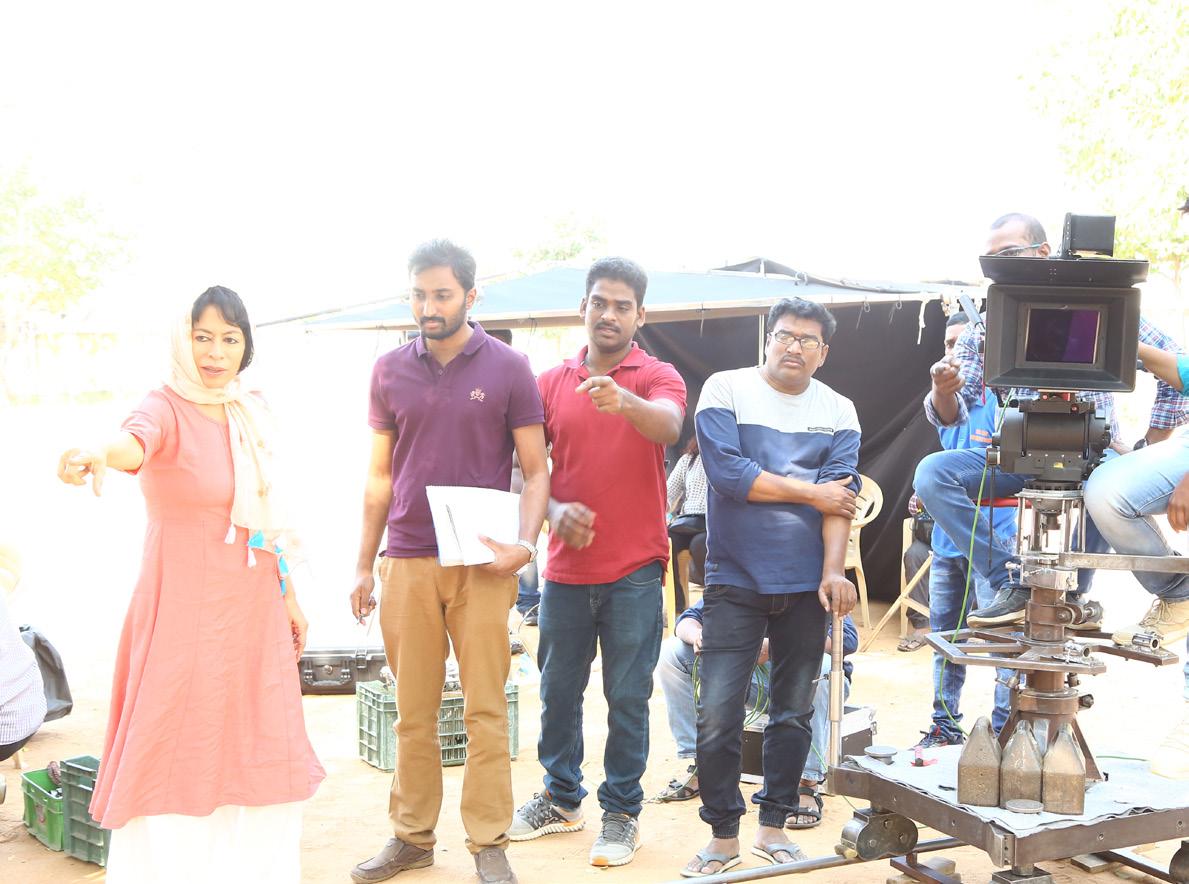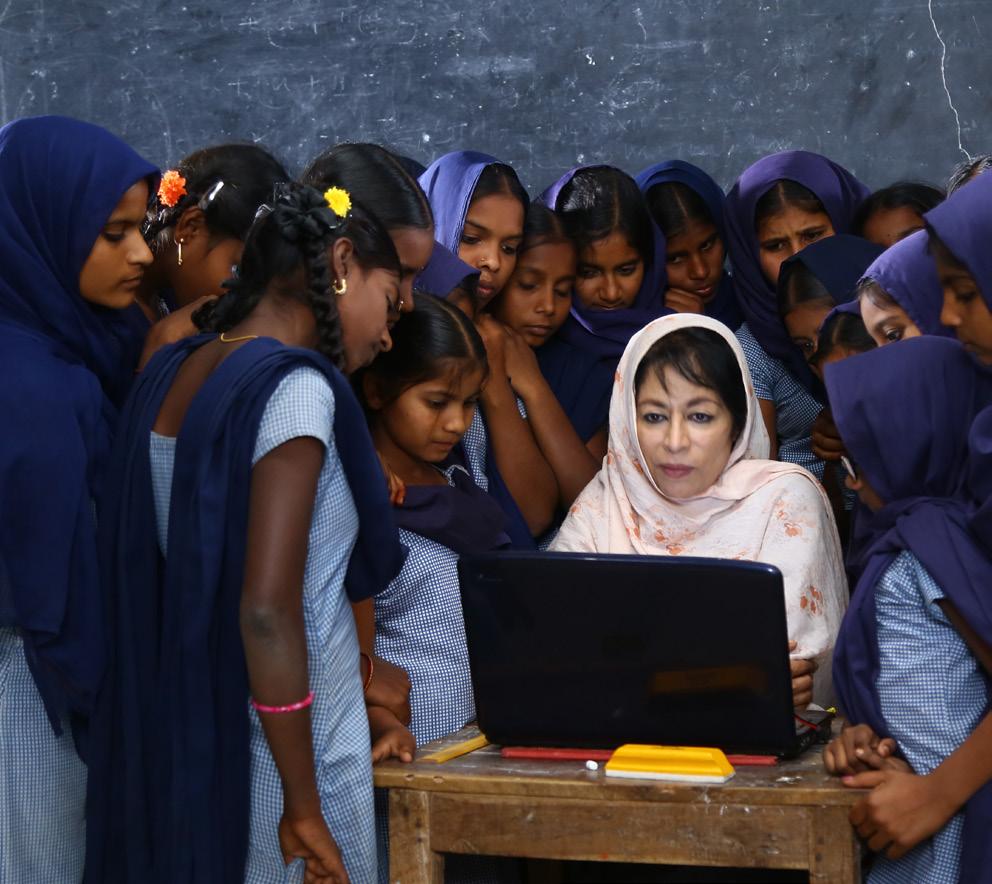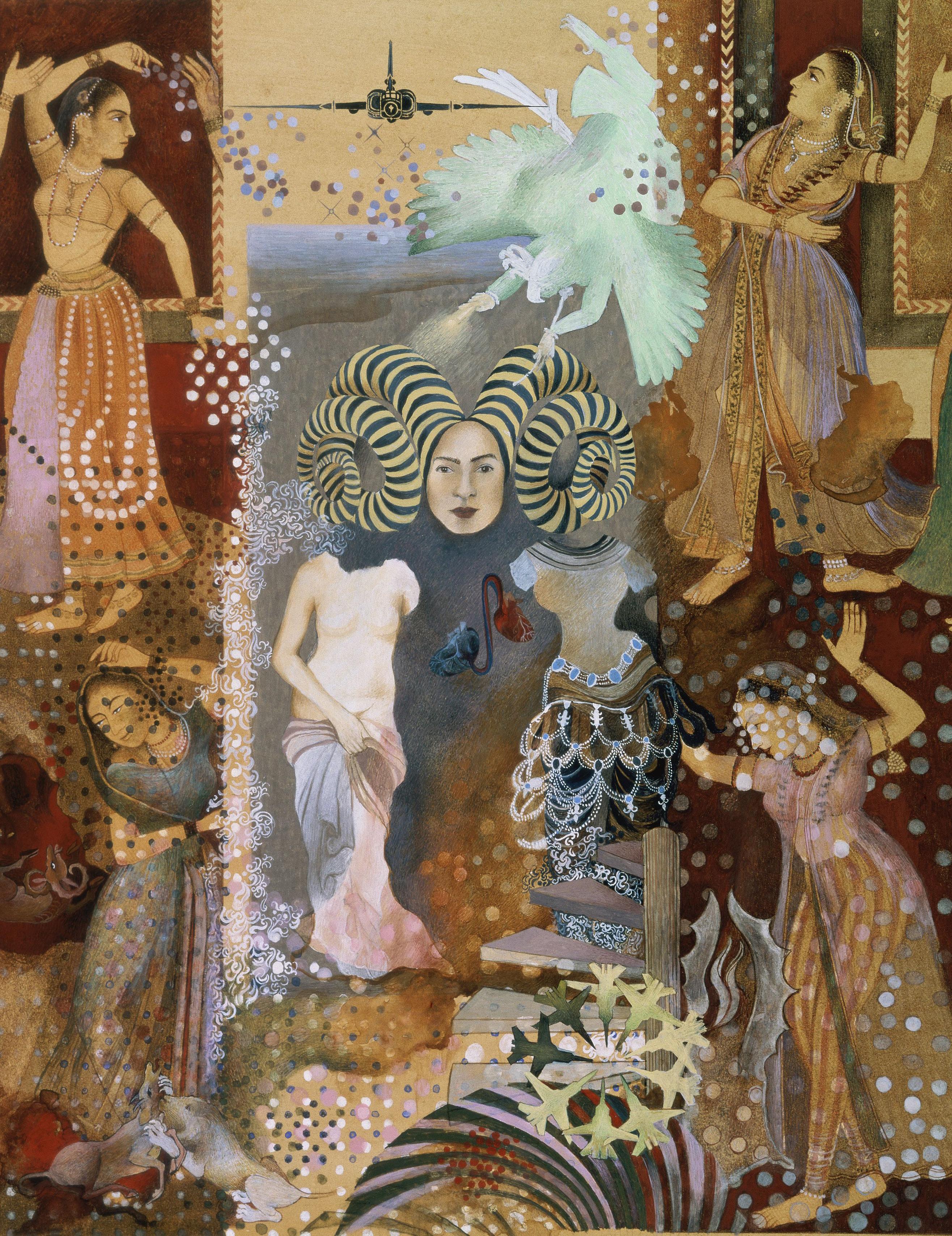
4 minute read
The Roar of a Winner
from SEEMA Magazine
by SEEMA
Radha directs actor Mahesh Dattani, who is an award-winning playwright and director in his own right.
RADHA BHARADWAJ DISCUSSES “SPACE MOMS,” HER CINEMATIC TRIBUTE TO THE WOMEN BEHIND THE INDIAN SPACE PROGRAM
Like her film “Space MOMs,” Radha Bharadwaj’s story is, as she puts it, “not the cry of a victim; it's the roar of a winner.” Bharadwaj, with her husband by her side as lead producer, dug deep into her Indian heritage to unearth a gem with unique sparkle. Instead of exploiting the stereotypical oppressed victim woman trope, Bharadwaj chooses to embrace what she dubs “indigenous pride.” Her philosophy makes the experience a launchpad from which Indians — and all indigenous cultures — can propel themselves into the stratosphere, and beyond.
STANDING ON SHOULDERS, BOOSTING OTHERS UP
Bharadwaj credits “hard knocks” to be her mentors. However, she also nods to Hollywood giants Ron Howard, Oliver Stone, and Brian Grazer. Stone read the script and recommended it to Imagine Entertainment, while founders Howard and Grazer let the young rookie fresh out of India make the film.
In some ways, Bharadwaj had no choice but to pay their kindnesses forward. Her vision for “Space MOMs” was specific: Redesign the indigenous success narrative. Further, she had to do it in the context of a challenging genre: science-fact. To help everyone on the vast team deliver on the film’s promise, she dug in, molding, coaching, guiding young and old through everything from acting to production and post-production.
CHANGING THE NARRATIVE
The Western-dominated film industry has nestled itself into an all-too-comfortable couch of
ADAM CARPENTER
pro-colonial culture. Far too often, Bharadwaj notes, film-watchers are fed images of “victimized women, poverty, caste, and religious strife.” “Space MOMs” takes off in a different direction.
Bharadwaj explains, “‘Space MOMs” is one of the few films that treats the everyday life and aspirations of average Indians with respect.” The dominant thread woven through the fabric of the modern Indian story is not drawn from the colonial spool. Rather, it comes from family.
“Our familial bonds, the push to excellence by parents who sacrifice everything so we can get a good education: These are part and parcel of what it means to be Indian,” Bharadwaj argues. “It's a big reason why so many Indians do well in STEM and management. Why so many top CEOs in the U.S. are of Indian descent.”
According to her, Indian success isn’t a by-product of a post-colonialized drive to overcome the manacles of the oppressor.
“Hundreds of millions of people have had the same upbringing that I had, the same upbringing that the Mars engineers had,” Bharadwaj says, adding that the ramifications of these millions of foundational families have been underrepresented on the big screen. Bharadwaj explains that this discrepancy is the catalyst igniting her film’s success: “We never see it depicted on film or television. That's a key reason why people respond so emotionally to ‘Space MOMs.’”

GIVING PEOPLE A NEW VOICE
“Space MOMs” has been heartily embraced, and the response has been overwhelming, particularly because the love comes from so many corners of the globe.
“It's not just Indians who see the importance of a film like ‘Space MOMs.’ I'm seeing the same reaction from others as well,” Bharadwaj says. The acclaim comes from a pantheon of cultural icons and innovators. She admits that her film has been dubbed a “must-see from stalwarts like the first woman of color in space, Dr. Mae Jemison, the Geena Davis Institute on Gender in Media, former U.S. Ambassador Curtis Chin, and many others.”
ROCKETING THROUGH THE CHALLENGES
While seeking funding, whenever Bharadwaj and her husband, David Cohen, presented the idea to Hollywood, the producers kept looking for the same, predictable, degrading motifs. She experienced the same challenge thousands of miles away from Sunset Boulevard. Bharadwaj recounts, “a Bollywood company that wanted to partner with me to make this film wanted the exact same victim narratives as the Hollywood folk.”
She explains that Bollywood is subject to the same self-loathing tropes — vestiges of colonial rule:
“Colonial attitudes are hard to eradicate. The former slave is forever contorting himself/herself into degrading positions to please the master.”
Bharadwaj and Cohen decided to bootstrap the venture themselves. They spent two years raising money. Since the project lifted off in 2021, the acclaim that “Space MOMs” has garnered vindicates their efforts. The movie has been lauded as the kind of tool Bharadwaj worked to create, a message that, as she puts it, encourages “a fair depiction” of Indian and “other ancient civilizations that also excelled in the sciences, like the civilization of Egypt or that of the Mayans and Incas.”
As Bharadwaj put it, “I want ‘Space MOMs’ to speak for all of us, and show that intellectual achievement is not the exclusive domain of certain races or peoples.”

Radha, in costume, directs her crew in Space MOMs. Radha, playing the role of the schoolteacher Farzana in Space MOMs, uses her laptop to teach her students about India’s Mars Orbiter Mission.
For a list of platforms where you can watch Space MOMs, visit https://geni.us/SpaceMOMs










